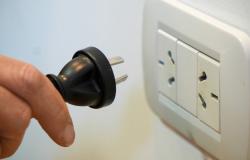In an unusual incident, a family in Florida, United Statesis demanding compensation of more than 80 thousand dollars (almost one and a half million Mexican pesos) from the POTafter the impact of a fragment of space debris in his home.
This event highlights the growing problem of space debris and how it can affect people on Earth.
On March 8, 2024, a 700-gram fragment of space debris crashed through the roof of Alejandro Otero’s home in Naples, Florida. This object, which was later identified as a fragment of a charging platform for used batteries released from the International Space Station in 2021, left a sizeable hole in the roof of the Otero home. Fortunately, Otero’s son was home but was not injured.
The impact of space debris on everyday life. (Photo: DeDinero)
NASA (National Aeronautics and Space Administration) confirmed that the fragment did not completely disintegrate upon re-entering the Earth’s atmosphere, which allowed it to impact the Otero residence. This confirmation was enough for the family to present their formal claim to the space agency.
The Cranfill Sumner law firm, which represents the Otero family, issued a statement detailing the reasons for the claim. According to lawyer Mica Nguyen Worthy, the family is seeking compensation that considers not only material damages, but also emotional stress and the impact on their daily lives. Worthy stressed that although there were no physical injuries, the incident could have had catastrophic consequences.
The POT You have a period of six months to respond to the claim. This case could set an important precedent for how future claims related to space debris will be handled. NASA’s response will be closely watched by legal experts and citizens concerned about the growing amount of debris in space.
Space junk refers to any man-made object that is no longer useful and is in orbit around the Earth. This includes inactive satellites, rocket debris, and other fragments resulting from collisions and breakups in space.
The growth of space traffic has increased the amount of debris in orbit, which in turn increases the risk of impacts with active satellites and, as in the case of the Otero, with the Earth. Space debris fragments travel at extremely high speeds, allowing them to cause severe damage upon re-entering the atmosphere.
International space agencies, including NASA, are working on several strategies to mitigate the space debris problem. These include the controlled deorbitation of end-of-life satellites, the development of technologies to capture and remove debris, and the implementation of stricter regulations on launching and handling objects in space.
The Otero family case could establish an important legal precedent regarding the responsibility of space agencies for damages caused by space debris. So far, most space debris-related incidents have not resulted in formal claims, but as space traffic increases, more people are likely to be affected.
The incident in Naples, Florida, is a stark reminder of the dangers that space junk represents for space operations and for daily life in the Land. The NASA response and the outcome of this legal case will be important in defining how future similar incidents will be handled.





